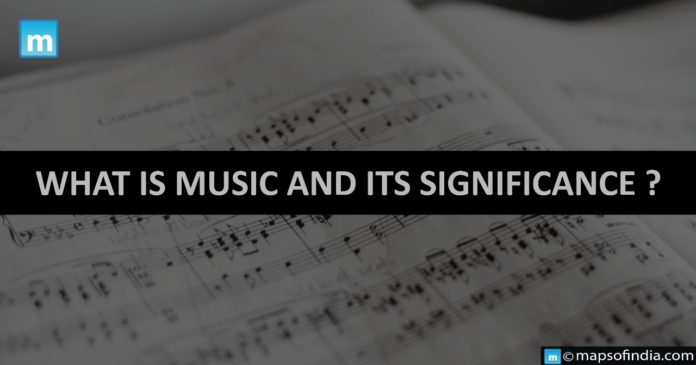Music is an art concerned with showcasing ideas and emotions in different forms through the elements of rhythm, melody, harmony and colour. The energy and force get connected with its beauty presented in audio.
“Music is your own experience, your own thoughts, your wisdom. If you don’t live it, it won’t come out of your horn. They teach you there’s a boundary line to music. But, man, there’s no boundary line to art,” said American Composer Charlie Parker.
It includes all sounds you hear in your surroundings, whether birds are chirping, the sweet and humming tone of a nightingale or cars honking in traffic. Sounds muster to form an emotion or innovative ideas in the atmosphere, which brings music into effect.
It is composed of vibrations, sounds and silent moments and is not necessarily pleasant or pretty. It can send a whole range of experiences, environments and emotions.
Different terms related to music
Melody: It is the series of notes and an aesthetic product of a provided succession of pitches in musical time, creating a pitch-to-pitch movement.
Rhythm: It is a frequent occurrence of movement patterns in sound and is the placement of sound in time. It includes particular units of sound collected as beats. It is the idea of tempo or the speed at which the beats are played.
Harmony: It means numerous lines of musical notes that are subordinate to the melody and complement it. One can hear the harmony, but it’s not as well-known as the effects of the melody. It comprises a series of chords or three or more notes played simultaneously.
Psychologists did a study at the University of London which discovered that even when listening to a short piece of music, a person could assess sadness or happiness in his or her interlocutor, even if the subject contains a neutral facial expression.
Author Victor Hugo stated, “Music expresses that which cannot be put into words and that which cannot remain silent.” American poet Henry Wadsworth Longfellow characterised it as “the universal language of mankind.”
Significance of Music
- Changes mood in the environment: Music is a therapy for many as it brings joy, positivity and entertainment. It resolves different problems as it carries emotions. It could be helpful in depression, trauma and anxiety. It has helped specially-abled people who respond to the music whenever it plays.
- Bringing creativity: Music sends thoughts to the brain, making it more innovative. It incorporates our mind with art and imagination. It enhances our comprehension ability. For instance, when we listen to a song, we know and understand its lyrics. One tries to comprehend what the singer is trying to convey through his song. When a person listens to instrumental music, he uses his right brain to know what a musician is trying to say or indicate with his music without specifying words.
- Helps children improve their listening abilities: When they listen to a song, they can distinguish between the different tones, voices or melodies. It creates the understanding and meaning of the soft, hard or loud voice. Children carefully listen and remain curious while a song plays. They get to know the variety of moods of a person, which are conveyed by using music and different tones.





